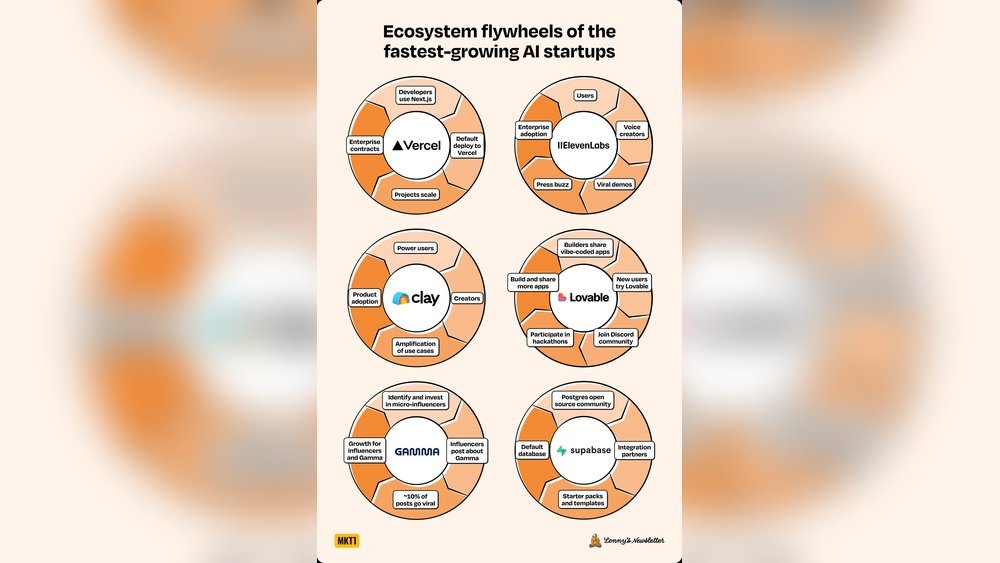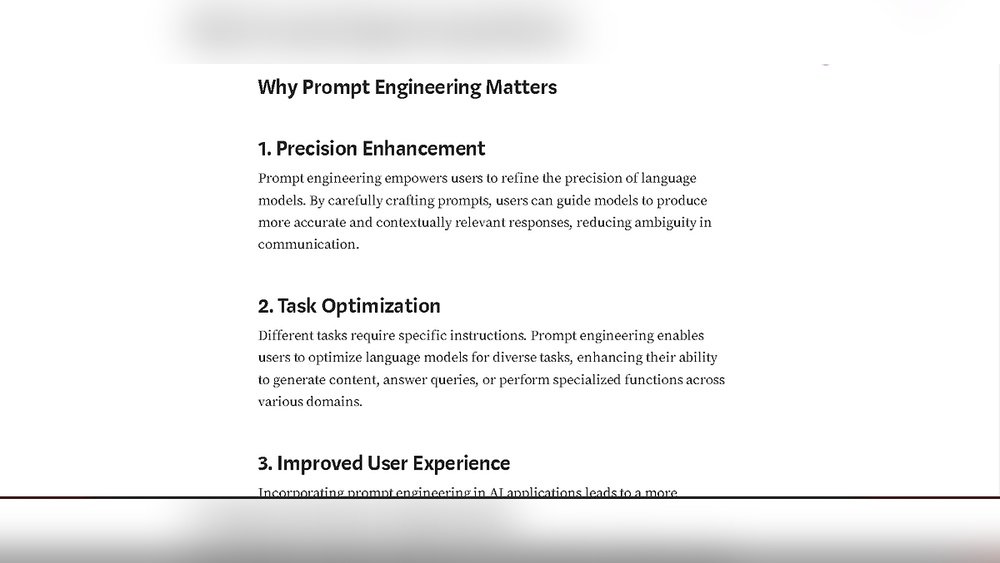Cloud communication computing platforms are transforming digital communication. They offer seamless integration of services and tools.
In today’s fast-paced world, businesses need efficient communication solutions. Cloud platforms provide flexibility and scalability. They allow companies to connect globally without hefty infrastructure costs. These platforms offer tools for messaging, video calls, and collaboration. They streamline communication processes, making them crucial for modern businesses.
As technology evolves, the demand for cloud communication grows. It’s essential to understand how these platforms work. This knowledge helps in making informed decisions for business growth. Whether you run a small startup or a large enterprise, cloud communication can be a key asset. Dive into this topic to explore its potential and impact on business success.

Credit: www.akamai.com
Introduction To Cloud Communication
Cloud communication has transformed how businesses interact. It offers flexible, scalable solutions. This technology is essential for modern communication needs. Organizations can now streamline their operations. They enjoy improved connectivity and collaboration. Cloud communication platforms are vital tools today.
Emergence Of Cloud Platforms
Cloud platforms emerged from the need for efficient communication. Traditional methods were costly and rigid. Businesses sought alternatives. They wanted cost-effective solutions. They needed adaptability and reliability. Cloud platforms provided these benefits. They changed communication dynamics. Now, companies can expand easily. They can adjust to demand fluctuations. This technology supports growth and innovation.
Impact On Connectivity
Cloud communication impacts connectivity significantly. It enhances collaboration among teams. Distance is no longer a barrier. Employees can work from anywhere. They access information quickly. Teams share data seamlessly. This boosts productivity and efficiency. It also improves decision-making. Real-time communication is possible. Businesses respond faster to changes. This agility is crucial for competitiveness.
Key Components
Cloud communication computing platforms include essential components like APIs, real-time communication, and data management. These components enable efficient communication through voice, video, and messaging services. They also ensure secure and scalable data handling across various devices and networks.
Cloud communication computing platforms are essential in today’s digital landscape, connecting businesses globally and enhancing communication efficiency. To truly leverage these platforms, understanding their key components is crucial. These components form the backbone of the platforms, ensuring seamless operations and robust performance. Let’s dive into the infrastructure and software essentials that make these platforms tick.
Infrastructure Basics
Infrastructure is the foundation of any cloud communication platform. It includes the hardware and networks that power your communication tools. Imagine the servers that store and process your data, ensuring instant message delivery.
Reliable internet connection is key. Without it, you risk lagging communications and frustrated users. Have you ever experienced a dropped call during an important meeting? That’s often due to weak infrastructure.
Data centers play a vital role. They house the servers and ensure your data is safe and accessible. Think about how secure you feel knowing your information is stored in a state-of-the-art facility.
Software Essentials
Software is the engine driving cloud communication platforms. It includes the applications and programs that facilitate communication. Imagine using a user-friendly app that makes video conferencing seamless.
Security features are non-negotiable. You want software that protects your data from breaches. Ever worried about sensitive information leaking during a call? Robust encryption features can ease that concern.
Integration capabilities are crucial. Your software should easily connect with other tools you use daily. Consider how effortless it is to sync your calendar with your messaging app, ensuring you never miss a meeting.
As you explore cloud communication platforms, ask yourself: Does my provider offer these essential components? Ensuring your platform has strong infrastructure and software can transform your communication experience, making it efficient and secure.
Benefits Of Cloud Communication
Cloud communication platforms are transforming the way businesses operate, offering numerous advantages that make them indispensable in today’s digital world. One of the most significant benefits is their ability to enhance communication processes, making interactions seamless and efficient. If you’ve ever struggled with outdated communication systems, switching to cloud-based solutions can feel like a breath of fresh air.
Cost Efficiency
Cloud communication platforms are a game-changer when it comes to saving money. Unlike traditional systems, you don’t need to invest heavily in hardware or maintenance. This means more funds can be directed towards growth and innovation. Imagine reallocating your budget towards projects that matter most to you.
Moreover, with pay-as-you-go models, you only pay for what you use. This flexibility ensures you’re never overspending. Think of it as only buying the groceries you need rather than stocking up on unnecessary items.
Scalability
The ability to scale is vital for any growing business. Cloud communication platforms offer unmatched scalability. As your business expands, so can your communication systems, without the hassle of complex upgrades. If you’ve ever faced hurdles with rapid growth, this ease of scalability is invaluable.
Whether you’re adding new team members or expanding to new markets, the cloud accommodates changes seamlessly. This adaptability ensures you’re always ready for what comes next. Have you ever wondered how much easier expansion could be with the right tools?
Embracing cloud communication isn’t just about keeping up with technology; it’s about empowering your business to thrive. With cost efficiency and scalability, the cloud offers practical solutions to everyday challenges. How could these benefits transform your business? Take a moment to consider the possibilities.

Credit: www.bitrix24.com
Challenges Faced
Cloud communication computing platforms often encounter issues like data security and integration complexity. Ensuring seamless connectivity and managing costs can be daunting for businesses. Navigating regulatory compliance also presents significant hurdles in this evolving technological landscape.
Cloud communication computing platforms have transformed the way businesses operate, offering efficient solutions for communication and collaboration. However, these platforms come with their own set of challenges. Understanding and navigating these challenges can be key to successfully leveraging the full potential of cloud-based communication solutions.
Security Concerns
Security is a major concern when it comes to cloud communication computing platforms. You trust these platforms with sensitive data, from personal information to financial details. The risk of data breaches and unauthorized access looms large.
Imagine a scenario where you lose control of your confidential business data. This can lead to severe financial and reputational damage. To combat this, ensure robust encryption protocols and regularly update security measures.
Consider asking your cloud provider about their security certifications and compliance with industry standards. Are they proactive in identifying and mitigating risks? You have a right to know how your data is protected.
Integration Issues
Integration issues often arise when trying to align cloud communication platforms with existing systems. You might have experienced frustration when a new platform doesn’t sync well with your current tools. This can disrupt workflow and reduce efficiency.
Before committing to a platform, evaluate its compatibility with your existing systems. Will it seamlessly integrate with your current CRM or project management tools? A poor integration can lead to data silos and duplicated efforts.
Seek platforms that offer flexible APIs and strong support for third-party integrations. It’s crucial to test the integration process and ensure that your team can transition smoothly. What steps are you taking to ensure seamless integration?
Both security and integration challenges require careful consideration and proactive measures. By addressing these challenges head-on, you can make informed decisions that enhance your cloud communication strategy.
Major Platforms
Cloud communication computing platforms are transforming how businesses communicate. These platforms offer tools for messaging, video conferencing, and collaboration. They provide scalable solutions that fit different business needs. Understanding major platforms helps in choosing the right one.
Leading Providers
Several companies lead the cloud communication market. Microsoft Teams offers robust collaboration tools. Zoom is popular for video meetings. Slack focuses on team messaging. Each provider has unique strengths. They cater to different business needs. Microsoft Teams integrates well with other Microsoft products. Zoom offers high-quality video calls. Slack is ideal for quick team chats.
Platform Comparisons
Comparing platforms helps in making informed decisions. Microsoft Teams is great for large organizations. Zoom excels in video quality and ease of use. Slack offers flexibility in team communication. Pricing structures vary among platforms. Some offer free versions with limited features. Others have tiered pricing plans. Consider the features needed before choosing.
Industry Applications
Cloud communication computing platforms streamline business operations across industries. They offer scalable solutions for data storage and collaboration. These platforms enhance connectivity, enabling seamless communication among teams and clients.
Cloud communication computing platforms are transforming the way industries operate by offering scalable, efficient, and secure solutions. These platforms are especially crucial in sectors where communication is key, such as healthcare and financial services. By leveraging cloud technology, companies can improve their processes, enhance customer experiences, and achieve significant cost savings.
Healthcare Innovations
In healthcare, cloud communication platforms are driving innovations that improve patient care and streamline operations. Imagine a world where doctors can access patient records from anywhere, ensuring timely and accurate treatments. This is now a reality, thanks to cloud solutions.
Telemedicine has become a common practice, allowing patients to consult doctors without leaving their homes. This not only saves time but also minimizes the risk of spreading infections. Furthermore, cloud-based platforms enable real-time monitoring of patients’ vital signs, alerting healthcare providers to potential issues before they become critical.
Consider how cloud technology supports collaboration among medical professionals. Specialists can now easily share insights and data, leading to more accurate diagnoses and better treatment plans. If you’re in the healthcare industry, are you harnessing the full potential of cloud communication?
Financial Services
The financial services industry thrives on data, and cloud communication platforms offer a secure and efficient way to manage this critical resource. Banks and financial institutions are now able to process transactions faster and more securely than ever before.
Imagine the convenience of accessing your financial data anytime, anywhere. With cloud platforms, customers enjoy seamless banking experiences, whether it’s transferring funds or checking account balances. This accessibility enhances customer satisfaction and loyalty.
Fraud detection has also seen significant improvements. Cloud systems can analyze vast amounts of data quickly, identifying suspicious activities and preventing fraud in real time. For financial institutions, maintaining trust is paramount. Are you utilizing cloud technology to safeguard your customers’ assets effectively?
Cloud platforms also support compliance with regulatory requirements by automating data reporting and providing secure storage solutions. This reduces the burden on financial institutions and helps them focus on what they do best—serving their clients. Are you ready to embrace the efficiencies that cloud communication can bring to your financial operations?
By integrating cloud communication computing platforms, industries can not only meet current challenges but also anticipate future needs. What steps are you taking to ensure your industry stays ahead of the curve?
Future Trends
The world of cloud communication computing platforms is evolving rapidly, and the future trends are both exciting and transformative. As technology advances, these platforms are set to become more intelligent, faster, and more efficient. But what does this mean for you and your business?
Ai Integration
Artificial Intelligence is no longer a futuristic concept—it’s here, and it’s changing the way cloud communication platforms function. AI can automate routine tasks, making your operations more efficient. Imagine a system that learns from your communication patterns and suggests improvements.
AI can also enhance customer service through chatbots and virtual assistants. These tools offer 24/7 support, ensuring your customers always have the help they need. It’s not just about saving time; it’s about enhancing the overall experience.
Consider how AI-powered analytics can provide insights into communication trends within your organization. Are there areas where communication breaks down? AI can help identify these issues and suggest solutions, boosting productivity.
5g And Beyond
The rollout of 5G networks is set to revolutionize cloud communication. With faster speeds and lower latency, 5G makes real-time communication a reality. This means clearer video calls, faster data transfers, and more reliable connections.
But what about the future? As we look beyond 5G, emerging technologies promise even more advancements. Quantum computing and edge computing are on the horizon, offering even faster processing speeds.
Imagine a world where connectivity is seamless, and distance is no longer a barrier. How will this impact global collaboration? It’s time to think about how your business can leverage these advancements to stay ahead.
As you embrace these future trends, consider how they can help you streamline operations, improve customer interactions, and drive innovation. The future of cloud communication is bright—are you ready to be a part of it?

Credit: market.us
Frequently Asked Questions
What Is A Cloud Communication Platform?
Cloud communication computing platforms enable businesses to manage voice, messaging, and video services over the internet efficiently. It offers scalable, flexible solutions for customer interaction, reducing costs and enhancing communication capabilities. These platforms integrate with existing systems, providing seamless connectivity and improved collaboration.
What Are Examples Of Cloud Computing Platforms?
Popular cloud computing platforms include Amazon Web Services (AWS), Microsoft Azure, Google Cloud Platform, and IBM Cloud. These platforms offer services such as data storage, virtual computing, and machine learning tools. They cater to businesses and developers looking for scalable and flexible computing solutions.
What Are The Three Main Cloud Platforms?
The three main cloud platforms are Amazon Web Services (AWS), Microsoft Azure, and Google Cloud Platform (GCP). These platforms offer scalable computing resources, storage solutions, and various services to businesses and developers. They are leaders in the cloud computing industry, providing reliable and flexible infrastructure for diverse needs.
What Are The Types Of Communication Services In Cloud Computing?
Cloud computing offers communication services such as email, chat applications, video conferencing, and Voice over Internet Protocol (VoIP). These services enable real-time communication, collaboration, and data exchange over the internet, enhancing connectivity and productivity for businesses and individuals.
Conclusion
Cloud communication platforms simplify connections and enhance collaboration. They offer efficient tools for businesses to interact effortlessly. With seamless integration, these platforms support growth and adaptability. Companies can manage operations and maintain relationships more effectively. The ease of communication boosts productivity and engagement.
As technology evolves, these platforms will become even more vital. Choosing the right one ensures your business stays competitive. Embrace these platforms to streamline processes and improve teamwork. Their benefits are clear and lasting. Keep exploring options to find the best fit for your needs.






